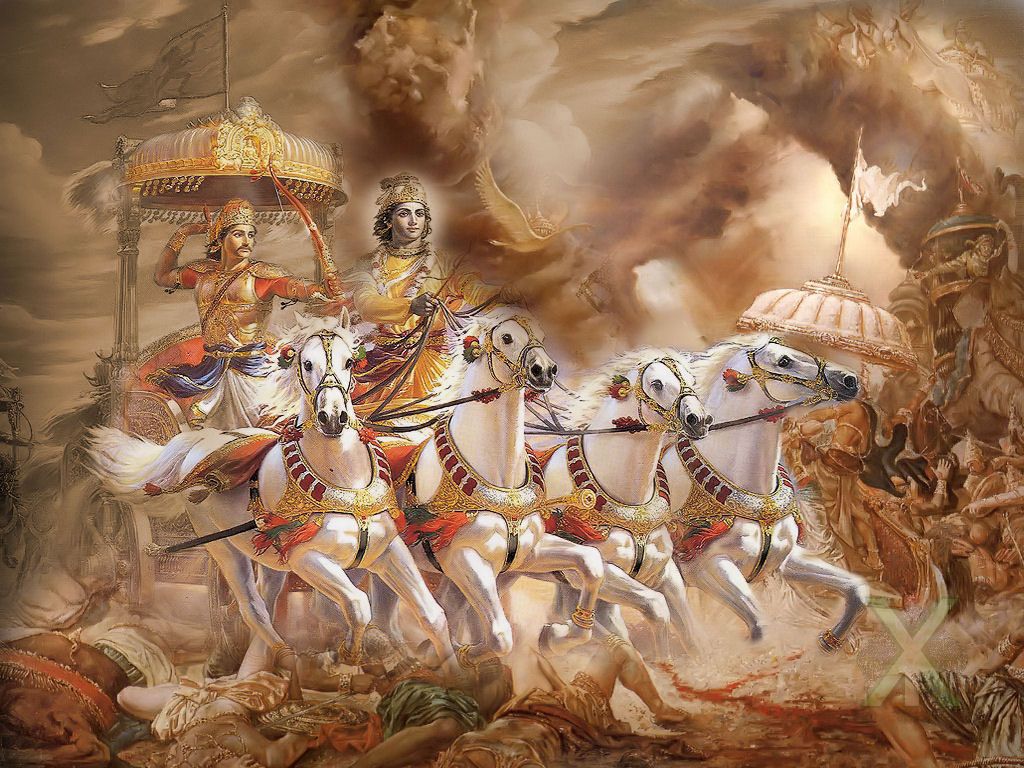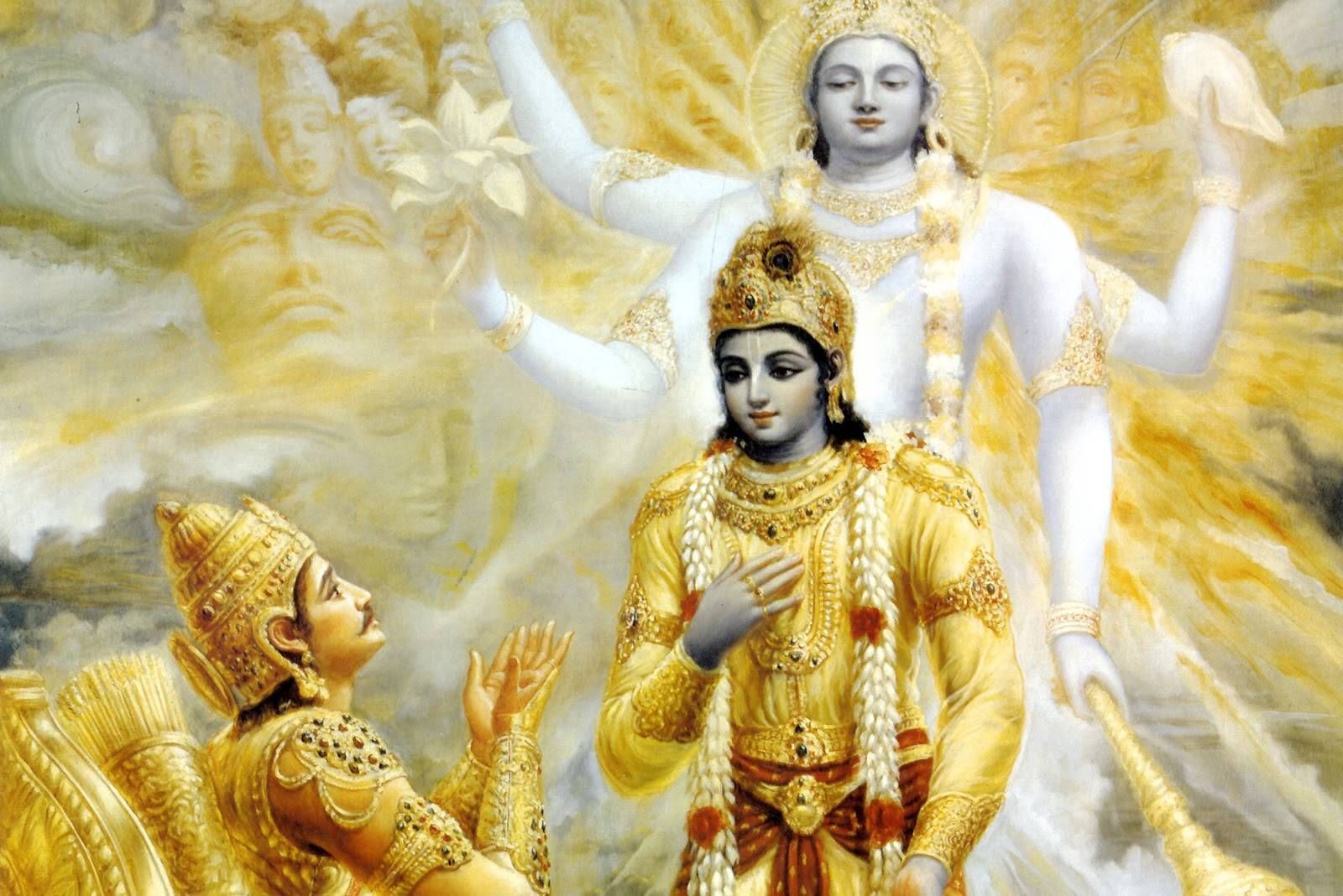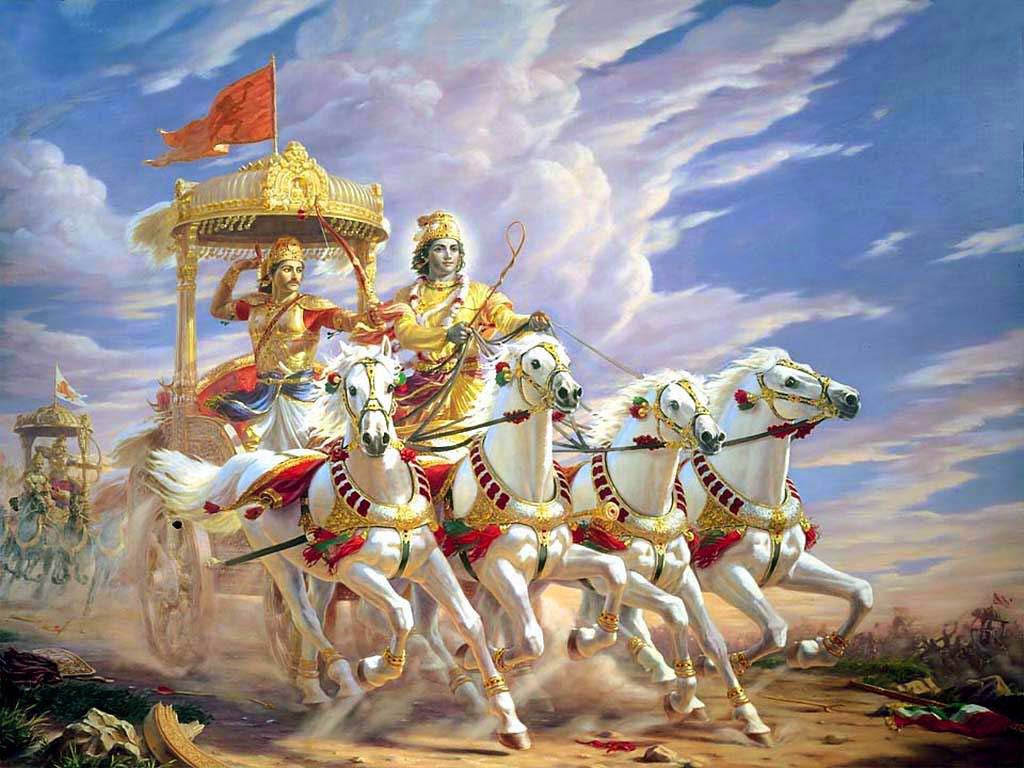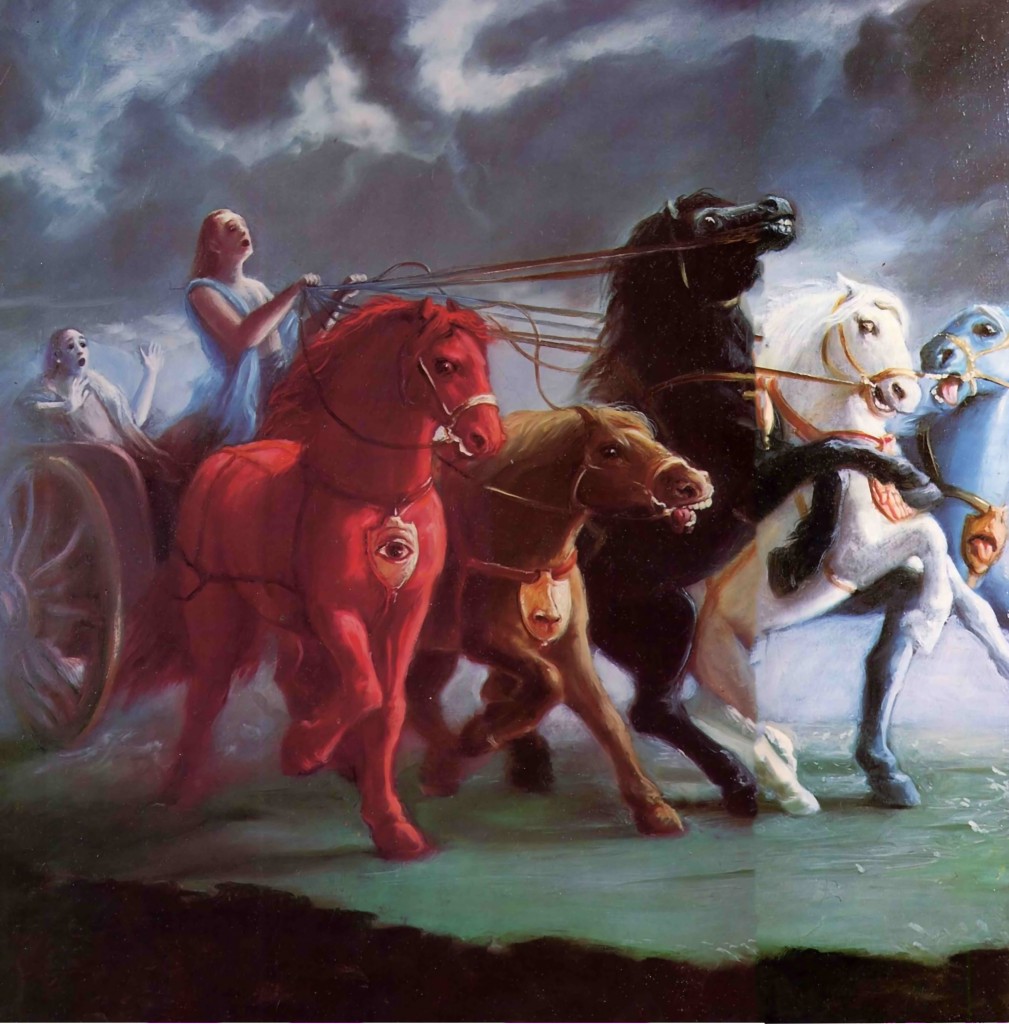ANGER AND DEPRESSION

Chapter 2/Shloka 56
SHLOKA:
duḥkheṣv anudvigna-manāḥ
sukheṣu vigata-spṛhaḥ
vīta-rāga-bhaya-krodhaḥ
sthita-dhīr munir ucyate
IN HINDI:
दुःखेष्वनुद्विग्नमनाः सुखेषु विगतस्पृहः ।
वीतरागभयक्रोधः स्थिधीर्मुनिरुच्यते ॥ ५६ ॥
SYNONYMS
duḥkheṣu — in the threefold miseries; anudvigna-manāḥ — without being agitated in mind; sukheṣu — in happiness; vigata-spṛhaḥ — without being interested; vīta — free from; rāga — attachment; bhaya — fear; krodhaḥ — and anger; sthita-dhīḥ — whose mind is steady; muniḥ — a sage; ucyate — is called.
TRANSLATION
One who is not disturbed in mind even amidst the threefold miseries or elated when there is happiness, and who is free from attachment, fear and anger, is called a sage of steady mind.

Chapter2/Shloka 62
SHLOKA:
dhyāyato viṣayān puṁsaḥ
saṅgas teṣūpajāyate
saṅgāt sañjāyate kāmaḥ
kāmāt krodho ’bhijāyate
IN HINDI:
ध्यायतो विषयान्पुंसः सङ्गस्तेषूपजायते ।
सङ्गात्सञ्जायते कामः कामात्क्रोधोऽभिजायते ॥ ६२ ॥
SYNONYMS
dhyāyataḥ — while contemplating; viṣayān — sense objects; puṁsaḥ — of a person; saṅgaḥ — attachment; teṣu — in the sense objects; upajāyate — develops; saṅgāt — from attachment; sañjāyate — develops; kāmaḥ — desire; kāmāt — from desire; krodhaḥ — anger; abhijāyate — becomes manifest.
TRANSLATION
While contemplating the objects of the senses, a person develops attachment for them, and from such attachment lust develops, and from lust anger arises.
Chapter 5/Shloka 26
SHLOKA:
kāma-krodha-vimuktānāṁ
yatīnāṁ yata-cetasām
abhito brahma-nirvāṇaṁ
vartate viditātmanām
IN HINDI:
कामक्रोधविमुक्तानां यतीनां यतचेतसाम् ।
अभितो ब्रह्मनिर्वाणं वर्तते विदितात्मनाम् ॥ २६ ॥
SYNONYMS
kāma — from desires; krodha — and anger; vimuktānām — of those who are liberated; yatīnām — of the saintly persons; yata-cetasām — who have full control over the mind; abhitaḥ — assured in the near future; brahma-nirvāṇam — liberation in the Supreme; vartate — is there; vidita-ātmanām — of those who are self-realized.
TRANSLATION
Those who are free from anger and all material desires, who are self-realized, self-disciplined and constantly endeavoring for perfection, are assured of liberation in the Supreme in the very near future.

Chapter 2/Shloka 3
SHLOKA:
klaibyaṁ mā sma gamaḥ pārtha
naitat tvayy upapadyate
kṣudraṁ hṛdaya-daurbalyaṁ
tyaktvottiṣṭha paran-tapa
IN HINDI:
क्लैब्यं मा स्म गमः पार्थ नैतत्त्वय्युपपद्यते ।
क्षुद्रं हृदयदौर्बल्यं त्यक्त्वोत्तिष्ठ परन्तप ॥ ३ ॥
SYNONYMS
klaibyam — impotence; mā sma — do not; gamaḥ — take to; pārtha — O son of Pṛthā; na — never; etat — this; tvayi — unto you; upapadyate — is befitting; kṣudram — petty; hṛdaya — of the heart; daurbalyam — weakness; tyaktvā — giving up; uttiṣṭha — get up; param-tapa — O chastiser of the enemies.
TRANSLATION
O son of Pṛthā, do not yield to this degrading impotence. It does not become you. Give up such petty weakness of heart and arise, O chastiser of the enemy.

Chapter 2/Shloka 14
SHLOKA:
mātrā-sparśās tu kaunteya
śītoṣṇa-sukha-duḥkha-dāḥ
āgamāpāyino ’nityās
tāṁs titikṣasva bhārata
IN HINDI:
मात्रास्पर्शास्तु कौन्तेय शीतोष्णसुखदुःखदाः ।
आगमापायिनोऽनित्यास्तांस्तितिक्षस्व भारत ॥ १४ ॥
SYNONYMS
mātrā-sparśāḥ — sensory perception; tu — only; kaunteya — O son of Kuntī; śīta — winter; uṣṇa — summer; sukha — happiness; duḥkha — and pain; dāḥ — giving; āgama — appearing; apāyinaḥ — disappearing; anityāḥ — nonpermanent; tān — all of them; titikṣasva — just try to tolerate; bhārata — O descendant of the Bharata dynasty.
TRANSLATION
O son of Kuntī, the nonpermanent appearance of happiness and distress, and their disappearance in due course, are like the appearance and disappearance of winter and summer seasons. They arise from sense perception, O scion of Bharata, and one must learn to tolerate them without being disturbed.
SOME MOTIVATIONAL QUOTE'S
-

BY A.C. Bhaktivedanta Swami Prabhupada
QUOTE
“Anyone who is steady in his determination for the advanced stage of spiritual realization and can equally tolerate the onslaughts of distress and happiness is certainly a person eligible for liberation.”
-

BY A.C. Bhaktivedanta Swami Prabhupada
QUOTE
“For man, mind is the cause of bondage and mind is the cause of liberation. Mind absorbed in sense objects is the cause of bondage, and mind detached from the sense objects is the cause of liberation.”
-

BY A.C. Bhaktivedanta Swami Prabhupada
QUOTE
“Out of many thousands among men, one may endeavor for perfection, and of those who have achieved perfection, hardly one knows Me in truth.”
UNCONTROLLED MIND AND LUST

Chapter 6/Shloka 5
SHLOKA:
uddhared ātmanātmānaṁ
nātmānam avasādayet
ātmaiva hy ātmano bandhur
ātmaiva ripur ātmanaḥ
IN HINDI:
उद्धरेदात्मनात्मानं नात्मानमवसादयेत् ।
आत्मैव ह्यात्मनो बन्धुरात्मैव रिपुरात्मन: ॥ ५ ॥
SYNONYMS
uddharet — one must deliver; ātmanā — by the mind; ātmānam — the conditioned soul; na — never; ātmānam — the conditioned soul; avasādayet — put into degradation; ātmā — mind; eva — certainly; hi — indeed; ātmanaḥ — of the conditioned soul; bandhuḥ — friend; ātmā — mind; eva — certainly; ripuḥ — enemy; ātmanaḥ — of the conditioned soul.
TRANSLATION
One must deliver himself with the help of his mind, and not degrade himself. The mind is the friend of the conditioned soul, and his enemy as well.

Chapter 6/Shloka 6
SHLOKA:
bandhur ātmātmanas tasya
yenātmaivātmanā jitaḥ
anātmanas tu śatrutve
vartetātmaiva śatru-vat
IN HINDI:
बन्धुरात्मात्मनस्तस्य येनात्मैवात्मना जित: ।
अनात्मनस्तु शत्रुत्वे वर्तेतात्मैव शत्रुवत् ॥ ६ ॥
IN HINDI:
बन्धुरात्मात्मनस्तस्य येनात्मैवात्मना जित: ।
अनात्मनस्तु शत्रुत्वे वर्तेतात्मैव शत्रुवत् ॥ ६ ॥
SYNONYMS
bandhuḥ — friend; ātmā — the mind; ātmanaḥ — of the living entity; tasya — of him; yena — by whom; ātmā — the mind; eva — certainly; ātmanā — by the living entity; jitaḥ — conquered; anātmanaḥ — of one who has failed to control the mind; tu — but; śatrutve — because of enmity; varteta — remains; ātmā eva — the very mind; śatru-vat — as an enemy.
TRANSLATION
For him who has conquered the mind, the mind is the best of friends; but for one who has failed to do so, his mind will remain the greatest enemy.

Chapter 3/Shloka 37
SHLOKA:
śrī-bhagavān uvāca
kāma eṣa krodha eṣa
rajo-guṇa-samudbhavaḥ
mahāśano mahā-pāpmā
viddhy enam iha vairiṇam
IN HINDI:
श्री भगवानुवाच
काम एष क्रोध एष रजोगुणसमुद्भवः ।
महाशनो महापाप्मा विद्ध्येनमिह वैरिणम् ॥ ३७ ॥
SYNONYMS
śri-bhagavān uvāca — the Personality of Godhead said; kāmaḥ — lust; eṣaḥ — this; krodhaḥ — wrath; eṣaḥ — this; rajaḥ-guṇa — the mode of passion; samudbhavaḥ — born of; mahā-aśanaḥ — all-devouring; mahā-pāpmā — greatly sinful; viddhi — know; enam — this; iha — in the material world; vairiṇam — greatest enemy.
TRANSLATION
The Supreme Personality of Godhead said: It is lust only, Arjuna, which is born of contact with the material mode of passion and later transformed into wrath, and which is the all-devouring sinful enemy of this world.

Ghost In The Shell
SHLOKA:
tasmāt tvam indriyāṇy ādau
niyamya bharatarṣabha
pāpmānaṁ prajahi hy enaṁ
jñāna-vijñāna-nāśanam
IN HINDI:
तस्मात्त्वमिन्द्रियाण्यादौ नियम्य भरतर्षभ ।
पाप्मानं प्रजहि ह्येनं ज्ञानविज्ञाननाशनम् ॥ ४१ ॥
SYNONYMS
tasmāt — therefore; tvam — you; indriyāṇi — senses; ādau — in the beginning; niyamya — by regulating; bharata-ṛṣabha — O chief amongst the descendants of Bharata; pāpmānam — the great symbol of sin; prajahi — curb; hi — certainly; enam — this; jñāna — of knowledge; vijñāna — and scientific knowledge of the pure soul; nāśanam — the destroyer.
TRANSLATION
Therefore, O Arjuna, best of the Bhāratas, in the very beginning curb this great symbol of sin [lust] by regulating the senses, and slay this destroyer of knowledge and self-realization.

Chapter 3/Shloka 43
SHLOKA:
evaṁ buddheḥ paraṁ buddhvā
saṁstabhyātmānam ātmanā
jahi śatruṁ mahā-bāho
kāma-rūpaṁ durāsadam
IN HINDI:
एवं बुद्धेः परं बुद्ध्वा संस्तभ्यात्मानमात्मना ।
जहि शत्रुं महाबाहो कामरूपं दुरासदम् ॥ ४३ ॥
SYNONYMS
evam — thus; buddheḥ — to intelligence; param — superior; buddhvā — knowing; saṁstabhya — by steadying; ātmānam — the mind; ātmanā — by deliberate intelligence; jahi — conquer; śatrum — the enemy; mahā-bāho — O mighty-armed one; kāma-rūpam — in the form of lust; durāsadam — formidable.
TRANSLATION
Thus knowing oneself to be transcendental to the material senses, mind and intelligence, O mighty-armed Arjuna, one should steady the mind by deliberate spiritual intelligence [Kṛṣṇa consciousness] and thus – by spiritual strength – conquer this insatiable enemy known as lust.



